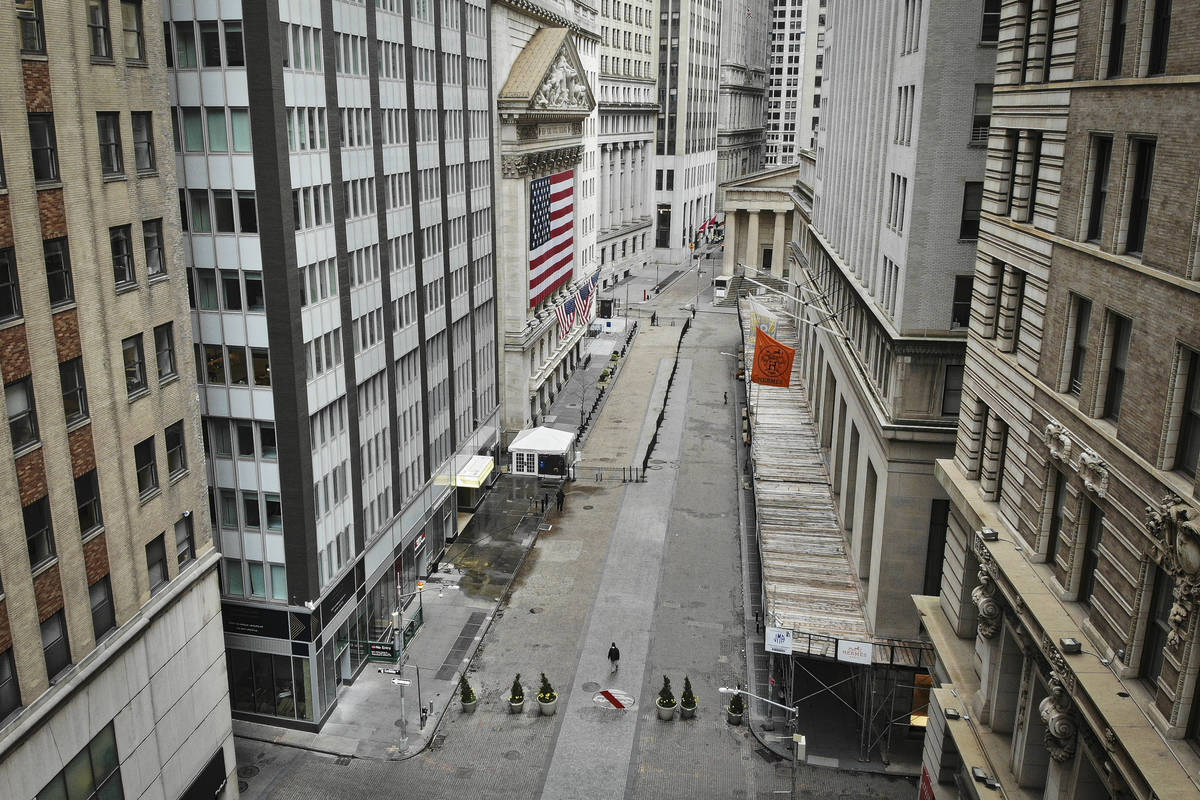US markets close down in spite of Fed aid

NEW YORK — Stocks fell about 3% on Wall Street Monday as Congress hit another roadblock in talks to inject nearly $2 trillion into the economy. Even an extraordinary flood of support from the Federal Reserve wasn’t enough to lift stocks, as frustration with Washington rises along with the number of coronavirus cases.
Another attempt to advance the aid bill on Capitol Hill failed in an afternoon vote. The plan would send checks to U.S. households and offer support for small businesses and the hard-hit travel industry, among other things, but Democrats say it too heavily favors corporations at the expense of public health and workers.
As Congress was locked in stalemate, the number of known infections worldwide jumped past 350,000. After just a few weeks, the United States has more than 35,000 cases and more than 400 deaths.
“The Fed is only important to the extent that it keeps the markets running smoothly,” said Chris Zaccarelli, chief investment officer for Independent Advisor Alliance. “It’s completely up to the federal government, and I mean Congress and the executive branch, at this point.”
With Monday’s losses, the stock market has lost more than a third of its value since its record last month, as more businesses shut down in hopes of slowing the spread of the coronavirus. Economists increasingly say a recession seems inevitable, analysts are slashing their forecasts for upcoming corporate profits and no one can say for sure how deep the downturn will be or how long it will last.
Markets are likely to remain incredibly volatile as long as the number of new infections accelerates. Until then, investors are looking for both central banks and governments to do their parts to support the economy.
The Fed came through Monday, saying it would buy as many Treasurys and mortgage-backed securities as it takes to get lending markets working smoothly again. It goes way beyond the $700 billion in purchases announced last week, which economists called a “bazooka” of support.
It also said it will buy a wide range of investments, including corporate bonds for the first time, to improve trading in markets that help home buyers purchase houses, state and local governments borrow and businesses to get enough short-term cash to make payroll.
The S&P 500 lost 67.52 points, or 2.9% to 2,237.40 in another day of sudden swings. It was down as much as 4.9% and as little as 0.2% earlier in the day. Before trading opened, futures for the S&P 500 swung from a loss of 5% to a gain following the Fed’s announcement, a microcosm of the extreme volatility dominating the market in recent weeks.
The Dow Jones Industrial Average fell 582.05 points, or 3% to 18,591.93. The Nasdaq lost only 18.84 points, or 0.3%, to 6,860.67 as technology stocks held up better than the rest of the market.
Trading on the New York Stock Exchange went all-electronic for the first time Monday after the exchange temporarily closed its trading floor as a precaution. The exchange announced the move last week after two employees tested positive for the virus. The number of floor traders had dwindled sharply in recent years as more trading become electronic.
AP Economics Writer Paul Wiseman contributed.